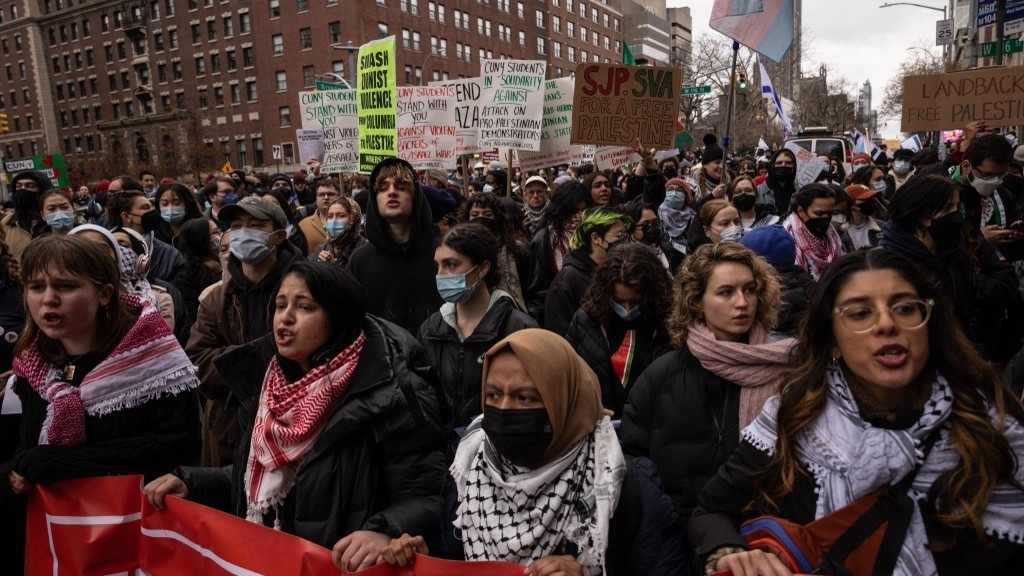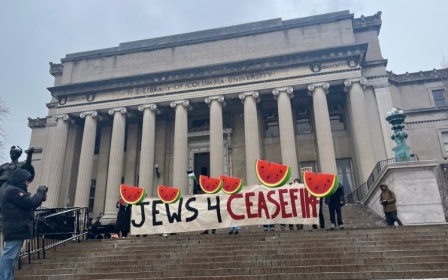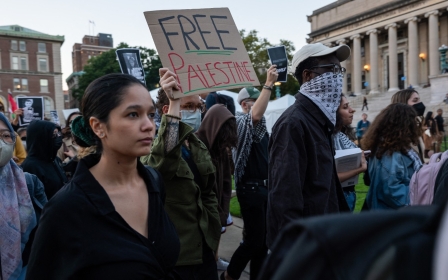US: Congressional committee to investigate Columbia University for antisemitism

Columbia University is the latest university under investigation for its handling of antisemitism and “failure to protect Jewish students” on campus, the House Committee on Education and the Workforce announced on Monday.
“We have grave concerns regarding the inadequacy of Columbia’s response to antisemitism on its campus,” the letter from the Congressional committee said.
“An environment of pervasive antisemitism has been documented at Columbia for more than two decades before the 7 October, terrorist attack,” the letter continued, with a list of incidents dating back to 2004.
Columbia University joins other Ivy League universities under investigation, including Harvard University, the University of Pennsylvania, and the Massachusetts Institute of Technology.
The launch of the new investigation follows committee chair Virginia Foxx’s recent warning that she might issue a subpoena to Harvard for failing to provide the documents her panel has sought in its investigation into antisemitism.
New MEE newsletter: Jerusalem Dispatch
Sign up to get the latest insights and analysis on Israel-Palestine, alongside Turkey Unpacked and other MEE newsletters
On 10 November, Columbia University suspended Students for Justice in Palestine (SJP) and Jewish Voice for Peace (JVP) on campus. However, according to the committee letter, “the university has repeatedly failed to enforce this decision and has allowed these groups and others to hold unauthorised antisemitic, anti-Israel events without consequence”.
The two student groups are anti-Zionist student organisations accused of being antisemitic. Jewish Voice for Peace says there is an attempt to "conflate criticism of the Israeli government or Zionism with anti-Jewish racism".
The letter demands that Columbia supply the committee with comprehensive documents related to incidents of antisemitism on campus, the number of Jewish students enrolled, and the outcomes of disciplinary actions against students or faculty members.
The university has until 26 February to provide all the documents. A spokesperson for Columbia said in a statement: “We are committed to combating antisemitism and all forms of hatred. We have received the letter from Chairwoman Foxx and will cooperate fully with any investigation.”
Skunk water doused on pro-Palestine protestors
Last month, eight Columbia University students were hospitalised after an attack with an illegal chemical-based weapon, known as skunk water, during a pro-Palestine rally.
The material used during the attack, known as "skunk water", was developed by the Israeli company Odortec, and has been previously deployed by Israeli forces as a crowd control weapon at protests.
Its intense putrid odour is reminiscent of the smell of sewage mixed with rotting corpses, according to people who have experienced it.
The students underwent medical care after experiencing symptoms of blurred vision, dizziness, headache, nausea, and irritated skin, even days after the attack.
One student who was rushed to hospital received a chest x-ray, a nebuliser and an electrocardiogram due to toxic chemical inhalation.
While Columbia University has sent an email to all students stating that "the NYPD is taking the lead role in investigating what appear to have been serious crimes, possibly hate crimes", and confirming that the alleged perpetrators have been identified and banned from campus, students were outraged by what they say is a lack of action and care.
Middle East Eye delivers independent and unrivalled coverage and analysis of the Middle East, North Africa and beyond. To learn more about republishing this content and the associated fees, please fill out this form. More about MEE can be found here.




